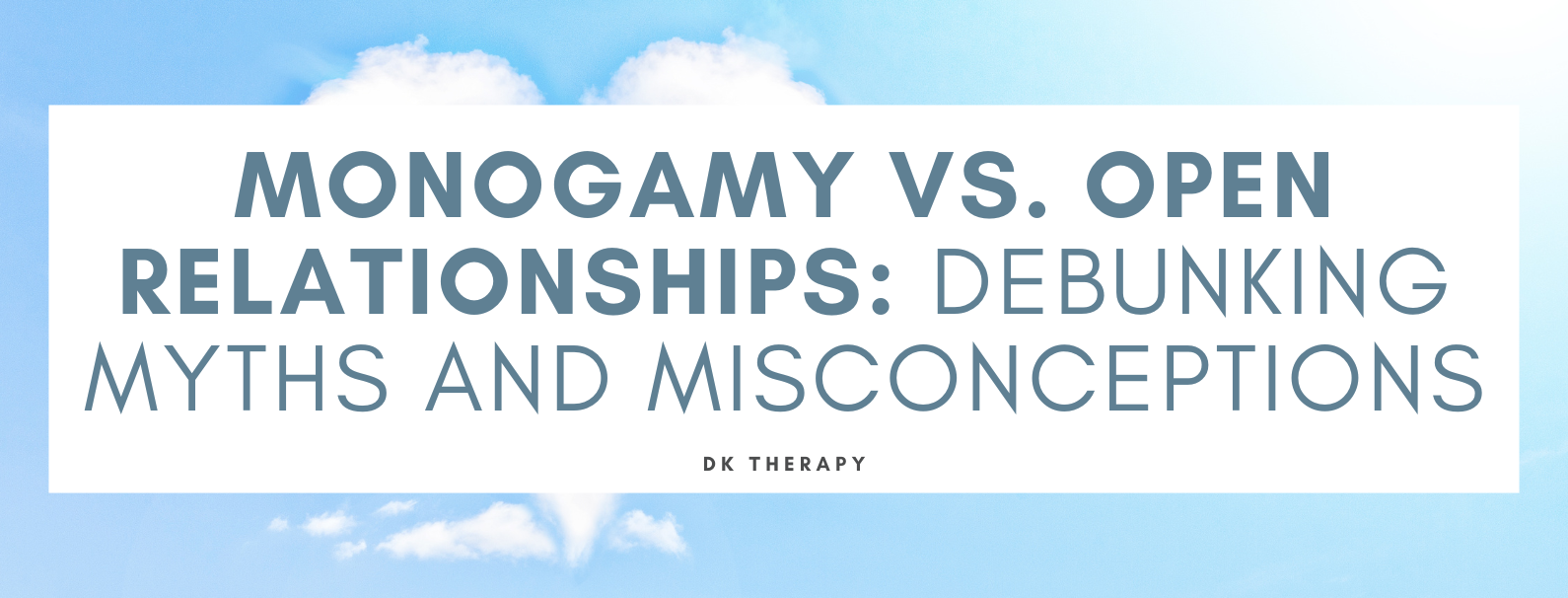
There are lots of ways to have a romantic relationship. Some people naturally form pair bonds or partnerships with just one partner. Others have multiple partners at once, and these partners may or may not be involved with each other.
Today, we’re going to discuss some of the differences between monogamy and open relationships.
Monogamous Relationships
 Monogamous relationships are the traditional (at least in American society) and widely accepted form of romantic partnerships where two individuals commit exclusively to each other emotionally, romantically, and sexually. In these relationships, the focus is on nurturing a deep, exclusive bond that often includes the expectation of lifelong commitment.
Monogamous relationships are the traditional (at least in American society) and widely accepted form of romantic partnerships where two individuals commit exclusively to each other emotionally, romantically, and sexually. In these relationships, the focus is on nurturing a deep, exclusive bond that often includes the expectation of lifelong commitment.
Common misconceptions about monogamy include the belief that it inherently leads to greater stability, complete agreement, and less jealousy. While monogamous relationships can provide a strong foundation for many, they are not immune to challenges, and issues such as jealousy, infidelity, and compatibility differences can still arise.
Open Relationships
Open relationships, on the other hand, are a form of consensual non-monogamy or polyamory where individuals in a committed partnership agree to allow for sexual or romantic connections with others outside their primary relationship. Open relationships are not synonymous with promiscuity, infidelity, or a lack of commitment. They are built on trust, open communication, and a mutual understanding of the boundaries and rules set by the partners involved. Open relationships vary widely; some may involve occasional sexual encounters with others, while others may develop deep emotional connections with multiple partners. The key is that these connections are consensual and transparent.
Monogamy & Non-monogamy: Not So Different After All
Despite their differences, monogamous and open relationships share a lot of key similarities. Both require strong communication skills, trust, and mutual respect. In both relationship types, it’s essential for partners to discuss their needs, desires, and boundaries openly. At the end of the day, a relationship is about feeling loved and supported, and not everybody feels these things the same way.
Additionally, both open and monogamous relationships thrive when the individuals involved are emotionally mature, self-aware, and committed to the relationship’s well-being. Open relationships dispel the misconception that love and attraction are finite resources; rather, they recognize that emotional connections can be diverse and abundant without diminishing the love between committed partners. Additionally, open relationships challenge the notion that jealousy is inevitable, as many open couples work together to manage and overcome these feelings through open communication and emotional growth.
Monogamous and open relationships are distinct approaches to romantic partnerships, each with its own set of strengths and challenges. Both require commitment, trust, and communication, highlighting the importance of individual needs and mutual consent in crafting healthy and fulfilling relationships. Ultimately, the success of any relationship, regardless of its structure, depends on the individuals involved and their ability to navigate the complexities of love, intimacy, and connection.
It’s important to note that not all polyamorous relationships are open relationships. Many poly relationships are closed relationships. This is a form of nonmonogamy where individuals form emotional and sexual bonds just with the other group members. This means that while they have multiple partners, they are not seeking new partners outside of this established group. In an open polyamorous relationship, participants may seek partners outside of the bounds of the relationship. This requires communication and openness to work, but so does any relationship.




